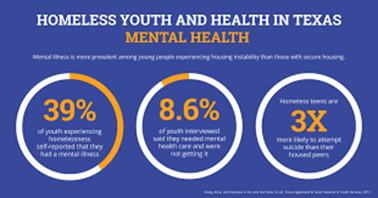Nurses who care for patients who are homeless understand that the in the United States:
People must be mentally ill to choose to be homeless.
Approximately 1/3 of the homeless are mentally ill.
Homelessness is classified as mental illness.
All the homeless have some form of mental illness.
The Correct Answer is B
Nurses who care for patients who are homeless understand that homelessness is a complex issue and that there are many factors that can contribute to it. While mental illness can be a contributing factor, it is not the only one and not all homeless individuals have a mental illness. It is important for nurses to approach each patient as an individual and to provide care that is tailored to their specific needs and circumstances.

Nursing Test Bank
Naxlex Comprehensive Predictor Exams
Related Questions
Correct Answer is A
Explanation
a. To maintain silence and be attentive to the client’s nonverbal communication and let the client gather his/her thoughts.
The best response for the nurse in this situation is to maintain silence and be attentive to the client's nonverbal communication. This allows the client to gather her thoughts and continue the conversation when she is ready. Interrupting the silence with a question or trying to push the client to share her feelings may cause her to withdraw further. It is important for the nurse to respect the client's pace and provide a safe and supportive environment for her to express her thoughts and feelings. Therefore,
Option a is the correct answer.
Correct Answer is D
Explanation
This client’s behavior indicates that they may pose a danger to themselves or others and may require immediate intervention to ensure their safety and the safety of those around them.
The other clients (a, b, c) may also have mental health needs, but their situations do not necessarily indicate the need for emergency admission to a mental hospital. It is important for healthcare providers to assess each client’s individual needs and to provide appropriate care and support.
Whether you are a student looking to ace your exams or a practicing nurse seeking to enhance your expertise , our nursing education contents will empower you with the confidence and competence to make a difference in the lives of patients and become a respected leader in the healthcare field.
Visit Naxlex, invest in your future and unlock endless possibilities with our unparalleled nursing education contents today
Report Wrong Answer on the Current Question
Do you disagree with the answer? If yes, what is your expected answer? Explain.
Kindly be descriptive with the issue you are facing.
